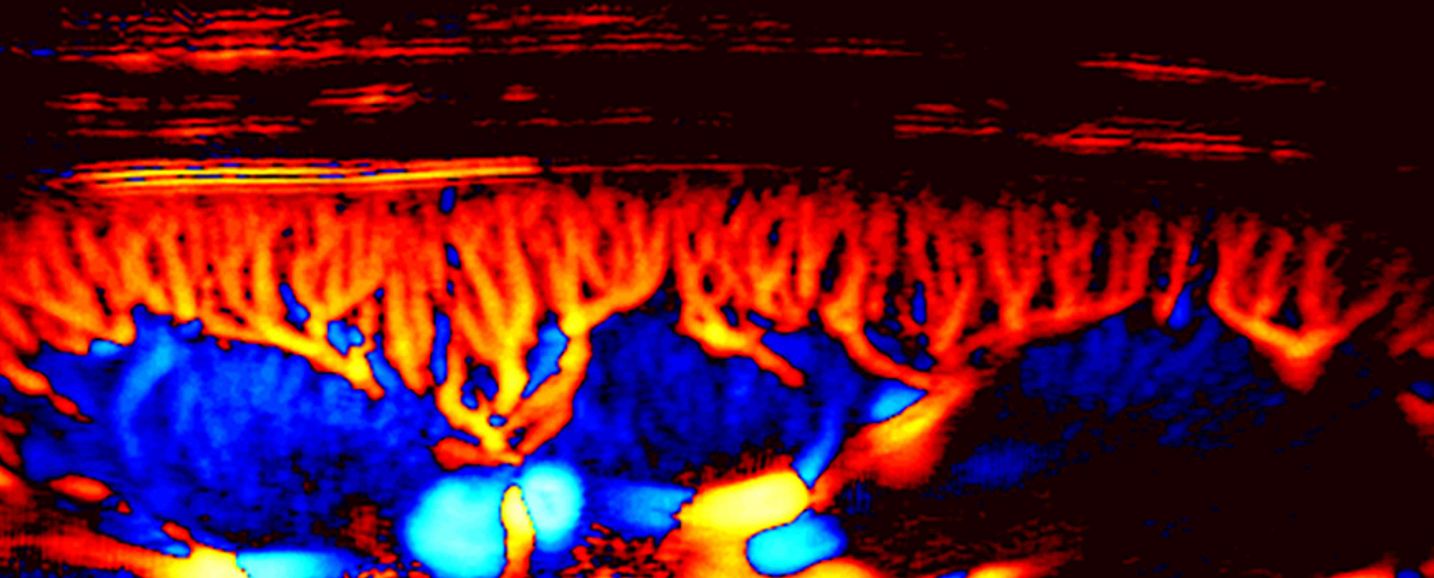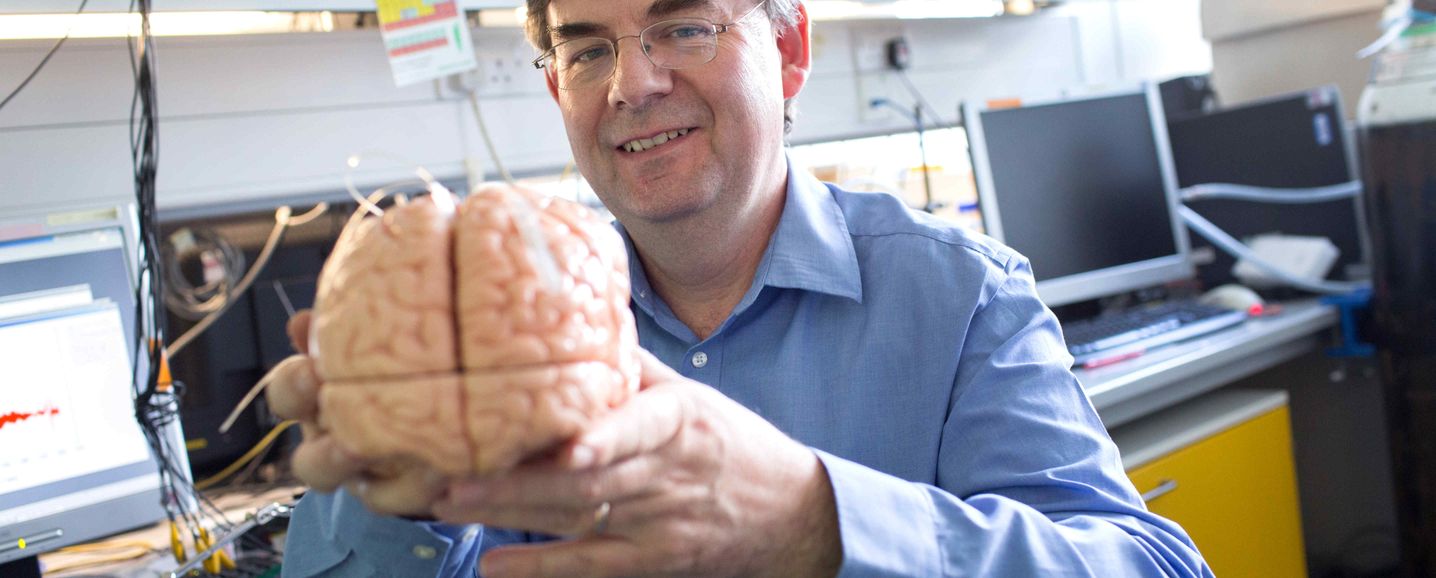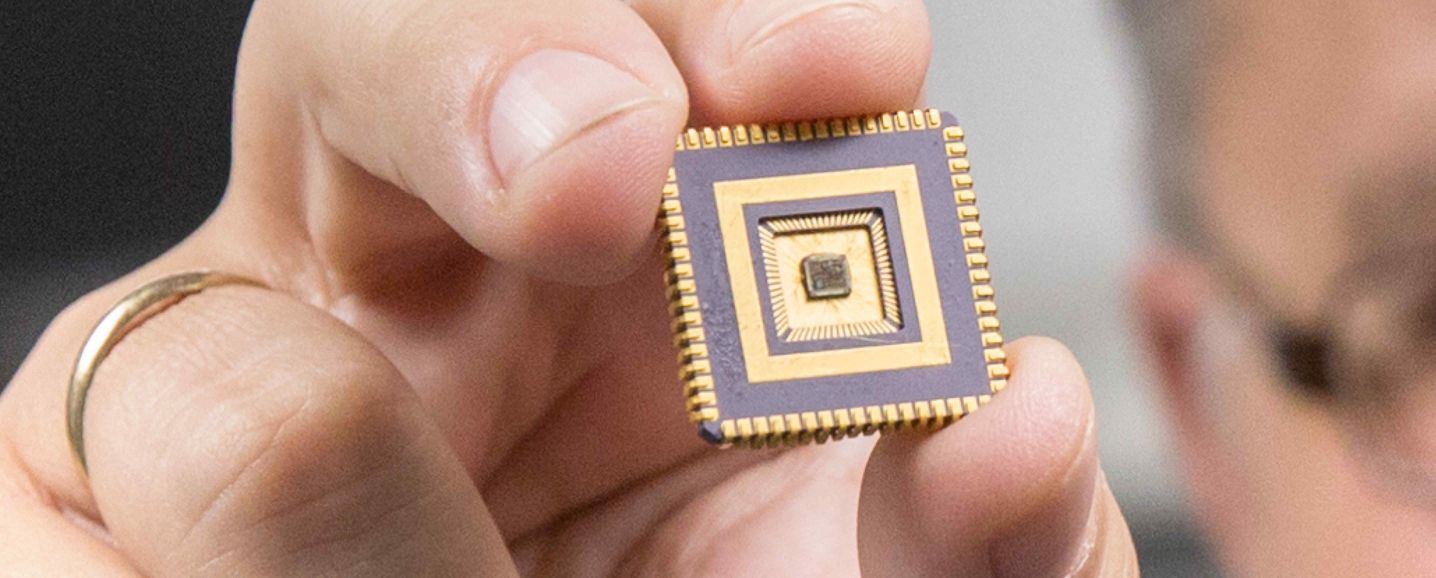Biomedical sensing, diagnostics and imaging
Despite the huge advances in the past decades, the demand for imaging techniques with better resolution, higher sensitivity and contrast, and more accessibility and affordability has never been higher. Investigators in the Department of Bioengineering seek to develop advanced image acquisition, image reconstruction, signal processing, and image analysis tools with ultrasound, MRI and optics and apply these tools to a wide range of medical and biological applications including cardiovascular diseases, cancer, neurology, and musculoskeletal diseases.
Development of sensing technologies can bring about advances in patient care through identification of new markers of disease, rapid diagnoses and more frequent or continuous monitoring, in the hospital, the clinic or ideally in the home. The enabling technology for these exciting developments ranges from molecular probes to whole measurement systems and encompasses chemical sensors and biosensors, low power circuits for data processing and wireless transmission, and novel real-time signal processing.
Academic staff in this area
Professor Anil Bharath
/prod01/channel_2/media/migration/faculty-of-engineering/AnilBharath--tojpeg_1587200209778_x4.jpg)
Professor Anil Bharath
Biologically inspired computer vision
Professor Martyn Boutelle
/prod01/channel_2/media/migration/faculty-of-engineering/MartynBoutelle--tojpeg_1587200468510_x4.jpg)
Professor Martyn Boutelle
Traumatic brain injury, microdialysis, microfluidics
Dr Hayriye Cagnan
/prod01/channel_2/media/images/people-list-300X400/Cagnan,-Hayriye-(2).jpg)
Dr Hayriye Cagnan
Single and multi-unit neural activity, local field potentials, and neuroimaging (EEGs and OPMs)
Professor Manos Drakakis
/prod01/channel_2/media/migration/faculty-of-engineering/ManosDrakakis--tojpeg_1587200810783_x4.jpg)
Professor Manos Drakakis
Circuits and systems for and from biology
Dr Amanda Foust
/prod01/channel_2/media/migration/faculty-of-engineering/AmandaFoust--tojpeg_1587201055357_x4.jpg)
Dr Amanda Foust
Development of holographic microscope systems to manipulate and monitor neural activity
Dr Andrei Kozlov
/prod01/channel_2/media/migration/faculty-of-engineering/AndreiKozlov--tojpeg_1587201174532_x4.jpg)
Dr Andrei Kozlov
Auditory neuroscience and biophysics
Dr Sylvain Ladame
/prod01/channel_2/media/migration/faculty-of-engineering/SylvainLadame--tojpeg_1587201374355_x4.jpg)
Dr Sylvain Ladame
Biosensor development and molecular diagnostics based on cell-free nucleic acid biomarkers
Professor Danny O'Hare
/prod01/channel_2/media/migration/faculty-of-engineering/DannyOHare--tojpeg_1587201564588_x4.jpg)
Professor Danny O'Hare
miRNA detection, cancer, exhaled breath condensate (EBC) analysis
Professor Darryl Overby
/prod01/channel_2/media/migration/faculty-of-engineering/DarrylOverby--tojpeg_1587201751904_x4.jpg)
Professor Darryl Overby
Biosensors for nitric oxide & organ-on-chip,real-time confocal imaging of cellular mechanics in sit
Dr Periklis Pantazis
/prod01/channel_2/media/images/people-list-300X400/Pantazis,-Periklis-(1).jpg)
Dr Periklis Pantazis
Capturing the dynamics of development and disease through cutting-edge live imaging
Dr Chris Rowlands
/prod01/channel_2/media/images/people-list-300X400/Rowlands,-Chris-(1).jpg)
Dr Chris Rowlands
We develop novel optical instruments, for use in neuroscience, cancer, drug synthesis and more
Professor Simon Schultz
/prod01/channel_2/media/migration/faculty-of-engineering/SimonSchultz--tojpeg_1587202301620_x4.jpg)
Professor Simon Schultz
In vivo two photon brain imaging and electrophysiological sensing
Professor Molly Stevens
/prod01/channel_2/media/migration/faculty-of-engineering/MollyStevens--tojpeg_1587202501801_x4.jpg)
Professor Molly Stevens
Multifunctional imaging probes and ultrasensitve disease diagnostics
Professor Mengxing Tang
/prod01/channel_2/media/migration/faculty-of-engineering/MengxingTang--tojpeg_1587202777601_x4.jpg)
Professor Mengxing Tang
Imaging in cancer, cardiovascular and neurological diseases, super-resolution and ultrasound imaging
Professor Peter D. Weinberg
/prod01/channel_2/media/images/people-list-300X400/Weinberg,-Peter-(1).jpg)
Professor Peter D. Weinberg
Diagnosis of heart failure by assessment of waves in peripheral arteries






/prod01/channel_2/media/migration/faculty-of-engineering/James-Choi--tojpeg_1587200654702_x4.jpg)
/prod01/channel_2/media/images/people-list-300X400/Lally,-Pete-(1).png)
/prod01/channel_2/media/images/people-list-300X400/Morse,-Sophie.jpg)
/prod01/channel_2/media/migration/faculty-of-engineering/newell_1629973771254_x4.jpg)
/prod01/channel_2/media/migration/faculty-of-engineering/taghavi_1629732967965_x4.jpg)
/prod01/channel_2/media/migration/faculty-of-engineering/JulienVermot--tojpeg_1587203173150_x4.jpg)
/prod01/channel_2/media/images/people-list-300X400/Yang,-Guang-(2).jpg)
/prod01/channel_2/media/images/people-list-300X400/Zhang,-Dandan.jpg)